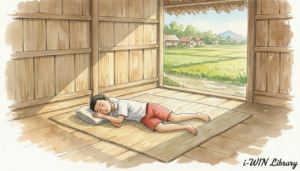A Study of Psychological Realism in Holland’s Cinematic: Adaptation of James’s Washington Square

Author(s): Sima Gharibey
Institution: Persian Gulf University, Islamic Republic of Iran
Category: Articles, IJMMU, Psychology, Media, Visual, Literature, Adaptation
Topics: Psychological Realism; Adaptation; Henry James; Washington Square; The Oppressed Daughter
Abstract: This comparative article studies how the oppressed daughter in Holland’s cinematic adaptation of Washington Square (1880) takes rule and analyzes the process through which it occurs via semiotics, images and symbols deployed in the light of psychological realism. Eventually managing to modify her status from a powerless girl into a nurturing one, she turns out to be capable of nurturing children experiencing what she has once experienced. In this study, the steps she takes comprising her mental processes, i.e., attaining identity, having herself authenticate, deploying significant silence, retaliating, securing the upper position, and acquiring self-development have all been analyzed. Even though the film concentrates on Catherine, the tale is as much Dr. Sloper’s story, for her father acts somewhat as her foil bringing out her characteristics more clearly when portraying both her being oppressed by others and her emerging desire to grow and attain independence. Also, since demonstrating Catherine’s psyche is of prime significance, the audio-visual art deployed presenting gestures, facial expressions and a symbolically suggestive mise-en-sce-ne in order to provide clues of her psychic unfolding revealed for the viewer have been included in this study.
Article can be downloaded here >> A Study of Psychological Realism in Holland’s Cinematic: Adaptation of James’s Washington Square








